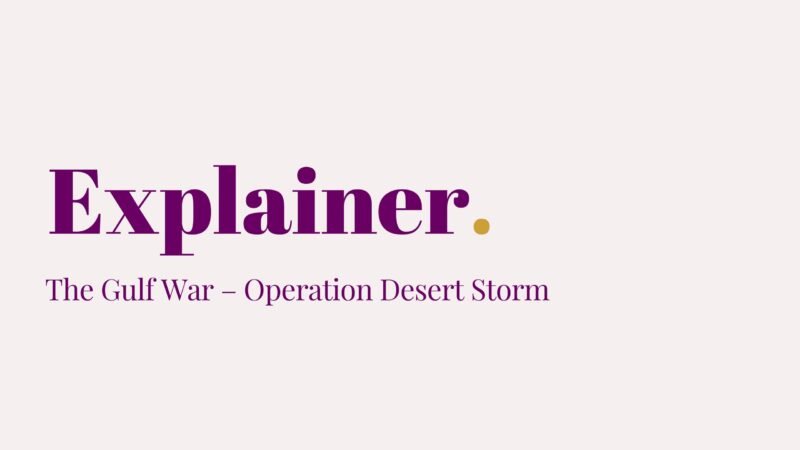Explainer: The Gulf War – Operation Desert Storm

The Gulf War, also known as the First Gulf War or Operation Desert Storm, was a conflict fought from 1990 to 1991 between an international coalition led by the United States and a military alliance led by Iraq. The conflict was triggered by Iraq’s invasion and annexation of Kuwait on August 2, 1990.
In response to Iraq’s invasion of Kuwait, an international coalition was formed, which included a large number of countries from around the world, including the United States, the United Kingdom, France, Saudi Arabia, Egypt, and other Arab states. The coalition launched a military campaign to expel Iraq from Kuwait and restore its government.
The Gulf War was marked by a quick and decisive military victory for the coalition forces. After a massive bombing campaign, ground forces moved into Kuwait and Iraq, quickly defeating the Iraqi military and restoring the government of Kuwait. The war ended on February 28, 1991, with Iraq accepting a ceasefire agreement.
The Gulf War had a significant impact on international relations and the Middle East region. The conflict was a clear demonstration of the military power of the United States and its ability to project its military force across the world. It also marked the first time that a large number of Arab states had cooperated with the United States and other Western powers in a military conflict, which helped to improve relations between the Arab world and the West.
However, the Gulf War also had negative consequences. Iraq’s military defeat and the subsequent imposition of international sanctions led to a decline in its economy and a deterioration of its political system, which ultimately paved the way for the rise of Saddam Hussein and his brutal dictatorship. The conflict also created a lasting enmity between Iraq and the United States, which would later play a role in the 2003 Iraq War.


















